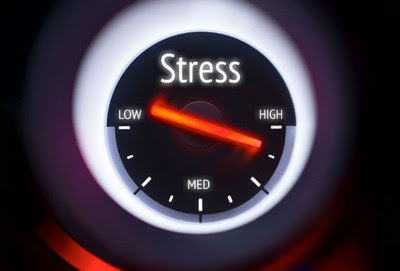Stress is a normal physical response that everyone at some point in our lives we experienced or come to experience.
Stress is a natural response to an event or to an environment that is perceived as a threat. Our body responds to the threat stimulating the nervous, endocrine and immune hormone that will cause changes in our body system. This is known as stress response and is the way our body protects itself from harm.
Therefore, from a certain level of stress, it ceases to be beneficial and can be transformed into harmful to health and wellness.
Identifying stress and its symptoms
Stress has a variety of symptoms, from physical, cognitive and emotional to behavioral. You may experience some or several of them at once.
- Anxiety and agitation
- Lack of concentration at work or in everyday tasks
- Excessive worry and mental saturation
- Difficulty making decisions
- Moodiness and irritability
- Inability to relax
- Loneliness, depression and unhappiness
- Aches and pains
- Own discomfort such as nausea, constipation or diarrhea
- Low immunity to common illnesses such as colds
- Chest pain and tachycardia
- Changes in libido or total loss
- Eat much or too little
- Lack of sleep or excessive
- Nervous behaviors such as nail biting
- Substance abuse such as alcohol, snuff or drugs
- Ignore or deny responsibility
How does stress affect our body?
When we perceive a threat, the central nervous system responds by secreting stress hormones, including adrenaline and cortisol.
These hormones prepare the body for an emergency making the heart race and to beat faster, so it provides more energy to the muscles and from that time are ready for action.
Once the danger has passed, the body's hormones return to normal levels. However, the more often this defense is activated, the harder it becomes clear it hormones remain in the body, causing symptoms of stress.
Causes of stress
The causes of stress may differ from one person to another. Some people find some relaxing activities, such as skating or parachuting; however others find it too stressful to enjoy it. Some people need to meet targets (they are more productive) while others are less productive working under pressure.
Here are some of the main reasons or most common situations that cause stress in most people:
- Move
- Have a child
- Loss of a loved one
- Get marry
- Unemployment
- Poverty
- Relationship problems
- Serious diseases
- Caring for a sick relative
- Unsanitary living conditions
- Annoying or noisy neighbors
Psychological effects caused by stress
Many people living constantly under stress may experience depression, anxiety, moodiness and irritability, which can have a negative impact on their personal relationships, job performance and overall welfare.
Some chronic diseases may worsen due to excessive stress and among them are:
- Asthma
- Eccemas
- Alopecia
- Depression
- Blood pressure
- Irritable bowel syndrome
- Cardiovascular diseases
- Autoimmune diseases
Learning to manage stress
Occasionally everyone feels stress, which can be helpful in specific situations. However, chronic stress can exacerbate many of the health problems we already have, worsening symptoms and enhancing the adverse effects on the body and mind.
There are many ways to control the states of stress effectively. Your doctor may recommend some treatments that can be helpful, some people may benefit from taking anti-anxiety and making frequent visits to a psychologist.
Daily tips to manage stress
Use a journal
If you are not sure what causes you stress or think you may be various causes, it can help keep a diary, so you can keep track of all those triggers that cause you stress.
Enter the date and time of an episode of stress you had, take notes of where you were, who you were and what you were doing, would also be nice to añadieras how you felt physically and emotionally. Writing is a therapeutic practice and helps us to see things from another perspective.
Guide to identify stress and learn to manage
4/
5
Oleh
Unknown












1 komentar:
[…] anxiety and control your weight. Yes, take it as an opportunity for improvement, not as another source of stress. Your energy should be focused on leaving the […]
Reply